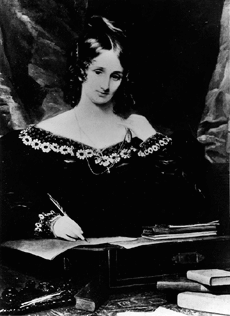If a child dressed as Dr. Frankenstein for Halloween or Purim, all the other children would label that costume “mad scientist.” The recognizable thing about the story of Frankenstein is its Frankenstein-ness, not the actual book itself. Like the creature of the novel, it’s as though Mary Shelley’s awesome book became a problem all on its own. Why has it been banned in the past? Probably because of a very specific misreading of the book. But the weird thing about this book is how even people who would never think of banning it are wrong about it, too!
In the introduction of my copy of Frankenstein or The Modern Prometheus, Shelley has this to say about how you’re supposed to read her book:
“The opinions which naturally spring from the character and situation of the hero are by no means to be conceived as existing always in my own conviction, nor is any inference justly to be drawn from the following pages as prejudicing any philosophical doctrine of whatever kind.”
A couple years ago, when writing about this book for Tor.com’s Monster Mash, I pointed out that Mary Shelley was possibly a time traveler, because her foresight into how this book would be misinterpreted is staggering. Seriously, Mary Shelley’s ghost is probably sitting at every screening of every film version of Frankenstein ever, just shaking her head and muttering the word “fools” to herself over and over again. And that’s because the point of the book seems, in my opinion, to be totally misunderstood. Ostensibly, the novel gives us a science fiction premise: the creation of a man cobbled together from the parts of other dead men, to ponder whether flouting death is all its cracked up to be. The negative cultural response to said premise seems to generally head in one of two directions.
The first are religious folks who sought to ban the book because it depicted obscene or unnatural acts and acts against God. You could argue that the novel actually agrees with people who dislike “unnatural acts” (mentioning Prometheus in the subtitle doesn’t do the author any favors in regards to delivering a mixed message) but a more contemporary and progressive religious argument could see the story of the monster’s creation as a cautionary warning; don’t fuck with nature. In essence, those who sought to ban the book on religious grounds likely ended up seeking to ban something that actually agreed with their stance.
More secular science fiction-loving folks have generally missed the point of the story, as well, taking it as a warning that technology will turn on you if you take it too far. This perspective on Frankenstein informs a lot of science fiction storytelling, so much so that Isaac Asimov infamously created the laws of robotics as a way to avoid rehashing stories where robots turn on their masters. (Franken-bots!)
In fact, I don’t think the book has any one specific message. You can see it as a cautionary tale about the workings of God, a warning about technology, or, if anything, a story about people having family problems. The monster can be seen as Frankenstein’s child in a number of ways. Aren’t we all dealing with the ghosts of the past? Aren’t we all walking around with the genetic material of dead people all the time? Being a person is pretty screwed up if you think about it.
In that sense, Shelley isn’t analyzing or critiquing technological or metaphysical innovation, she’s simply depicting how basic problems in our own lives are generated by it. Frankenstein isn’t a “Frankenstein story” but a “people do weird stuff to each other” story.
So, the next time someone calls Frankenstein a “cautionary tale,” I would turn to that person and say, “Yes, it’s cautioning all of us against creating anything new or having families.” And then see how fast that person tries to ban you!
Ryan Britt is a longtime contributor to Tor.com.










